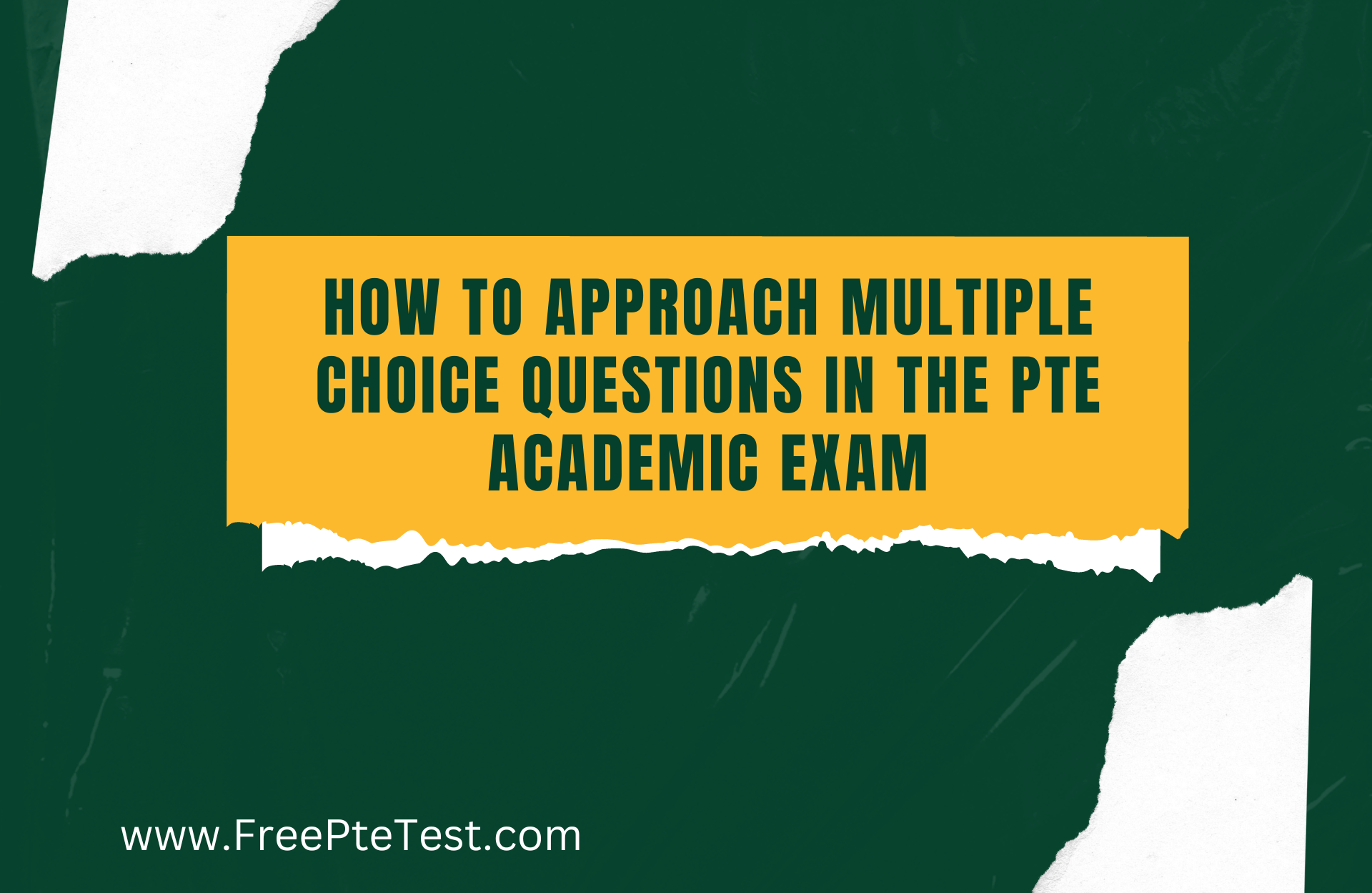How to Approach Multiple Choice Questions in PTE Academic: Welcome to our comprehensive guide on effectively approaching multiple-choice questions in the PTE Academic Exam. The Pearson Test of English Academic is a test of English language competence that is meant to evaluate the language skills of those who are not native speakers of English.
It is widely recognized by academic institutions, employers, and government agencies around the world. Mastering the art of answering multiple-choice questions is crucial for achieving a high score in this exam.
Understanding Multiple Choice Questions
Multiple-choice questions (MCQs) are a common format in the PTE Academic Exam, and they present a challenge for many test-takers. Each MCQ consists of a question followed by several options, and the test-taker must select the correct answer from the choices provided. Here’s how you can approach them with confidence:
1. Read the Question Carefully
Before diving into the options, take your time to read the question thoroughly. Pay attention to keywords, qualifiers, and any specific instructions provided. Understanding the context of the question is essential in selecting the most appropriate answer.
2. Identify Keywords
Look for keywords in the question that give you clues about the correct response. Keywords can be nouns, verbs, or adjectives that are crucial to the meaning of the question. By identifying these keywords, you can focus on relevant information while evaluating the options.
3. Evaluate Each Option
Read each option carefully and critically. Sometimes, certain choices may seem correct at first glance, but a closer examination might reveal otherwise. Pay attention to subtle differences between options, as well as any absolute statements that are likely to be incorrect.
4. Use the Process of Elimination
If you are unsure about the correct answer, utilize the process of elimination. Start eliminating options that you know are incorrect based on your understanding of the question and the keywords. Narrowing down the choices increases your chances of selecting the right answer.
5. Manage Your Time Wisely
Time management is an extremely important skill to have for the PTE Academic Exam. Multiple-choice questions should not consume excessive time, as you have other sections to attend to. If you find a particular question challenging, make a mental note and move on. You can always come back to it at a later time if you have the time.
Strategies for Specific Question Types
Different types of multiple-choice questions may appear in the PTE Academic Exam. Let’s explore strategies for handling some common question types:
1. Vocabulary-based Questions
These questions assess your understanding of specific words or phrases. To excel in vocabulary-based MCQs. It is very important to know the role of vocabulary in success in PTE Exam.
- Pay attention to context and surrounding words to derive the meaning of the given word.
- Be cautious of synonyms and antonyms that might appear as distractors in the options.
2. Inference Questions
Inference questions test your ability to draw conclusions based on the information presented. Follow these steps:
- Identify the main idea or theme of the passage.
- Look for supporting details that lead to the correct inference.
3. Reading Comprehension
Reading comprehension questions evaluate your understanding of a passage. Effective strategies include:
- Skim the passage before reading the questions to get an overview of the content.
- Highlight key points and main ideas while reading the passage.
4. Logical Reasoning
Logical reasoning questions assess your ability to analyze and draw logical conclusions. To tackle these questions:
- Break down complex information into simpler components.
- Look for patterns or relationships between elements.
Time-Saving Tips
Time management is vital in the PTE Academic Exam. Employ these time-saving tips to maximize your efficiency:
- Practice Regularly: Familiarity with the exam format and question types improves your speed and accuracy.
- Simulate Exam Conditions: Take mock tests under timed conditions to get accustomed to the time constraints.
- Use Abbreviations: Adopting commonly used abbreviations can save valuable time during note-taking or short responses.
- Skip and Return: If you encounter particularly challenging questions, skip them initially and return to them later if time permits.
Approaching multiple-choice questions in the PTE Academic Exam requires a combination of critical thinking, test-taking strategies, and English language proficiency. By honing these skills through consistent practice and following the tips provided, you can significantly enhance your performance in this essential exam.
Remember, success in the PTE Academic Exam is not solely about content quality, but rather a strategic approach to answering each question effectively. Utilize this guide to confidently tackle multiple-choice questions and achieve your desired score. Best of luck in your PTE Academic journey!
Summary:
- Master the art of approaching multiple-choice questions in the PTE Academic Exam.
- Use critical thinking and process of elimination to select the right answers.
- Employ effective strategies for different question types, including vocabulary-based and inference questions.
- Manage your time wisely during the exam for optimal performance.
- Regular practice
Check out our Web Story at https://freeptetest.com/web-stories/how-to-approach-multiple-choice-questions-in-pte-academic/



